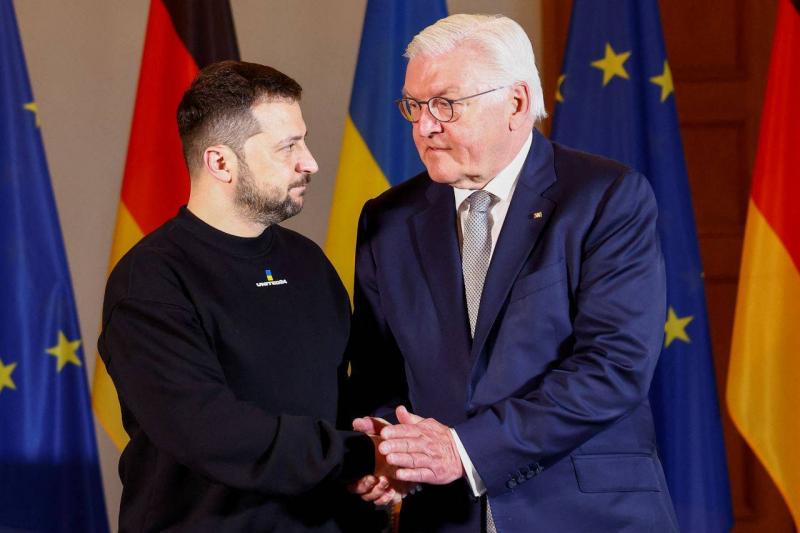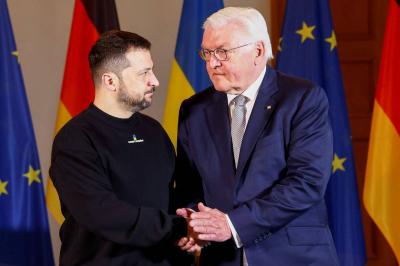Ukrainian President Volodymyr Zelensky stated that "Ukraine is ready to discuss peace proposals to end the Russian invasion of its country, but these proposals must be based on Kyiv's position and its peace plan." He expressed his gratitude to Germany for its support during his meeting with President Frank-Walter Steinmeier on Sunday, marking his first visit to Berlin since the Russian invasion.
For his part, German Chancellor Olaf Scholz viewed Zelensky's visit as a "strong message," affirming in a joint press conference with Zelensky that "Germany will support Ukraine as long as necessary." He emphasized that his country is collaborating with partners "to hold Russia accountable for its crimes."
Zelensky arrived in Berlin at midnight from Rome, where he met with Italian Prime Minister Giorgia Meloni and Pope Francis, who pledged to assist in returning Ukrainian children taken by Russians. Zelensky flew on a German government plane, accompanied by German Air Force fighter jets over the country. He wrote in the guestbook at the German presidency, "In the most difficult times in modern Ukrainian history, Germany takes pride in being our true friend and reliable ally. Together, we will triumph and restore peace to Europe."
Later, Zelensky is expected to meet with Chancellor Olaf Scholz and his security cabinet before heading to Aachen, western Germany, to receive the prestigious Charlemagne Prize, awarded annually to individuals who have rendered services to Europe and European unity.
On Saturday, Germany announced the provision of military assistance to Ukraine worth 2.7 billion euros (three billion dollars), the largest military aid package it has offered since the beginning of the Russian invasion. Berlin also committed to further support for Kyiv if necessary. Zelensky praised the aid package on Twitter, describing it as "great," noting that he seeks to discuss arms supplies, air defense, reconstruction, security, and Ukraine's EU membership bid with German officials.
Zelensky's last visit to Germany was to attend the Munich Security Conference in February last year, just before the war broke out. Germany, Europe's largest economy, faced criticism at the beginning of the war for what some described as hesitance in providing support, but it has since become one of the largest financial and military supporters of Ukraine, surpassing other European powers such as France.




